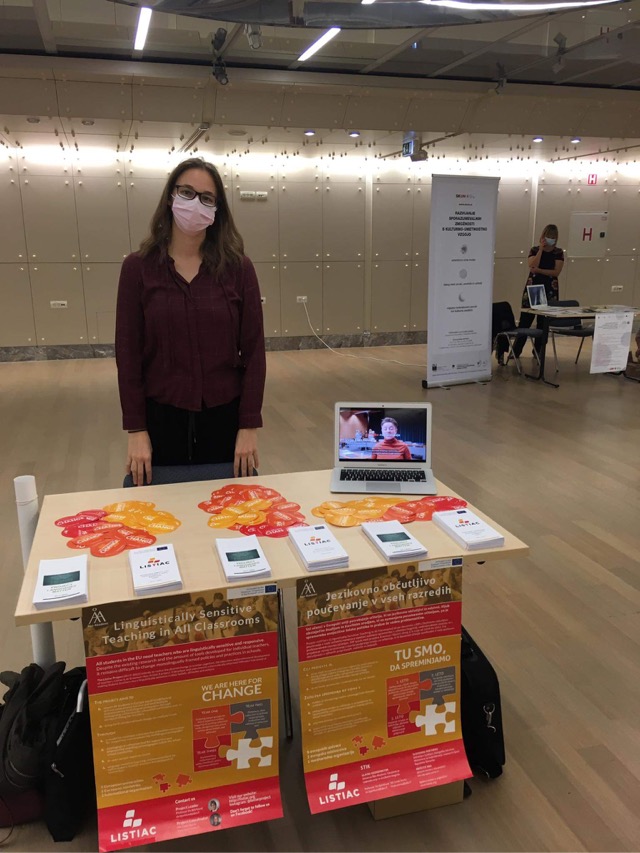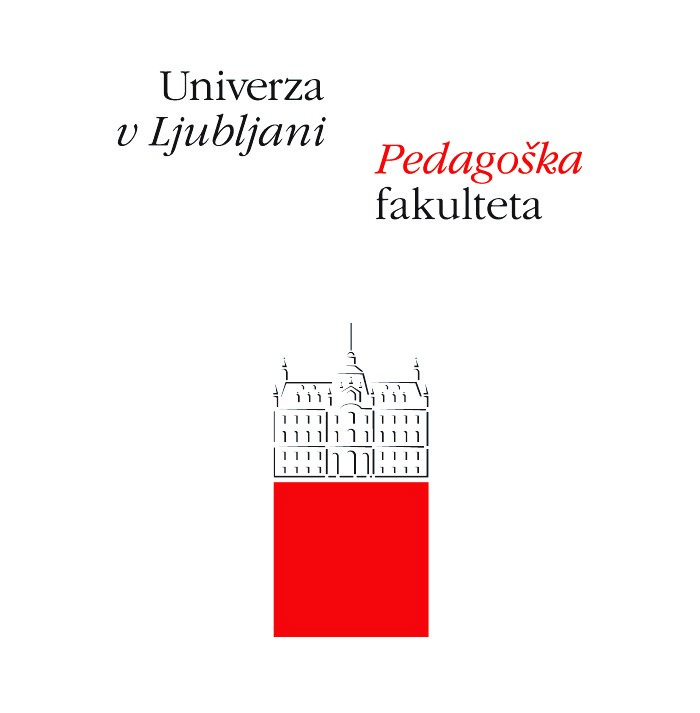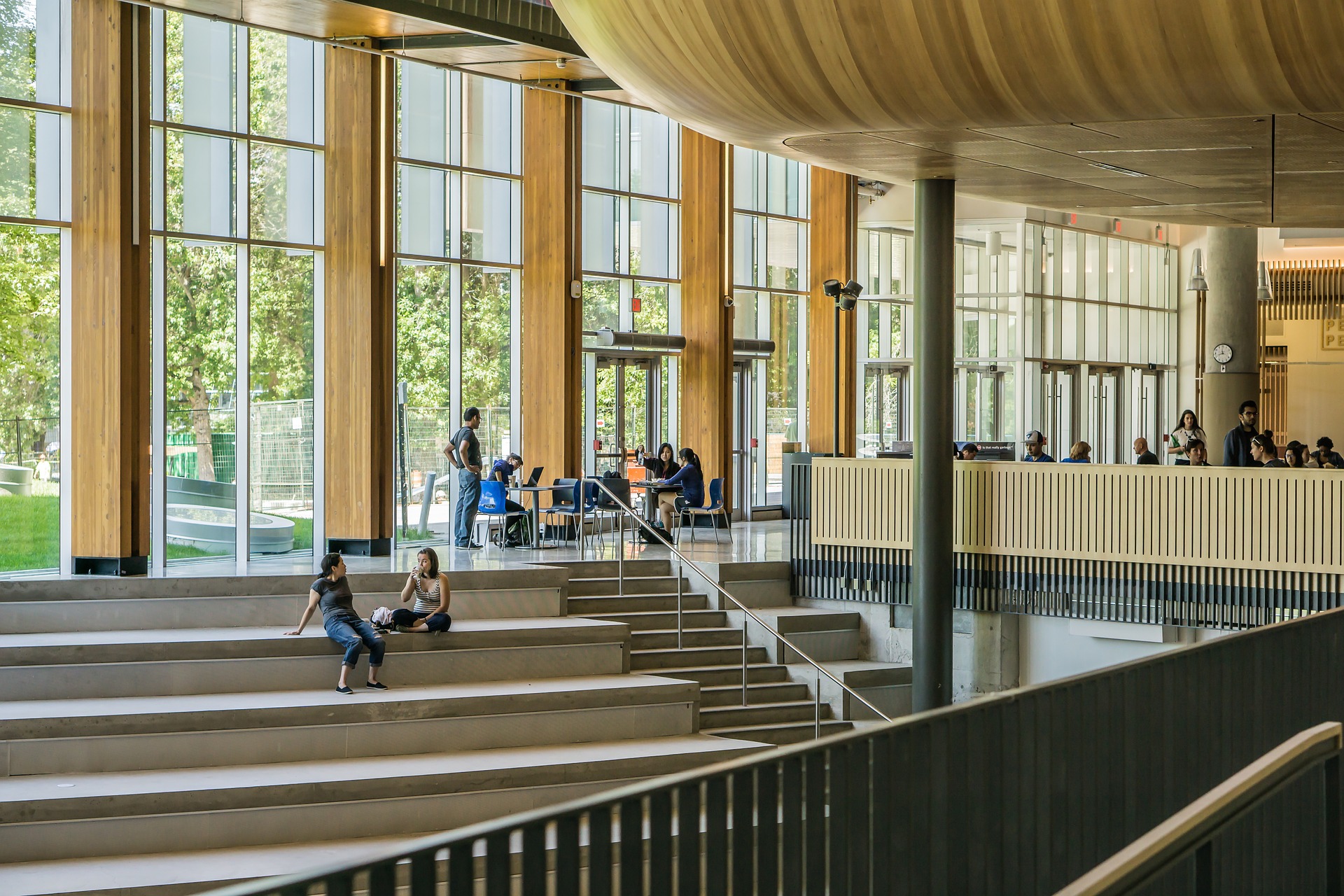The global societies of the 21st century are more and more characterized by heterogeneity, plurilingualism, and multiculturalism. As a consequence, an increasing number of people speak different languages and are affected by diverse cultural traditions. It is therefore crucial that we all possess linguistic and cultural sensitivity. With the help of the Slovenian Ministry of Education, Science, and Sport, the Listiac project partners from the University of Ljubljana, Faculty of Education have reached out to various cultural institutions and event-organizers in order to join forces in achieving this goal.
Last year, the Slovenian partners were invited to present the Listiac project at the Cultural Bazaar; a national event organized every year by the Ministry of Education, Science and Sport, the Ministry of Culture and the Cankar hall in Ljubljana. The Cultural Bazaar is a one-day fair, hosting almost 300 cultural institutions as well as numerous Slovenian artists. Within the scope of the Bazaar, numerous lectures, workshops, panel discussions, concerts, dance shows, film screenings and exhibition tours are held. Its aim is to provide information on cultural events and quality projects and programs taking place throughout Slovenia, as well as to stimulate interest in arts and cultural education and encourage teachers to integrate them into their classroom practices. At the fair, educators are informed about the latest artistic and cultural scientific findings and significant global and European documents with the aim of offering professionals in education and professional cultural institutions a space for mutual acquaintance, exchanges, professional training, etc.

Every year, the Cultural Bazaar is centered around a different cultural theme, further arranged into individual thematic sections. The main topic of the 12th Cultural Bazaar, held in 2020, was ensuring equality in the face of growing diversity, which aligned very well with the aims of the Listiac project. The event brought together experts in various fields dealing with equality from multiple perspectives: linguistic diversity, migration and refugees, equal rights and gender equality as well as from the perspective of equality of the physically, sensory and intellectually disabled.
Research recognizes the key role of literature when it comes to enabling students to gain a better understanding of the complexity of cultural, linguistic, and ability diversity. Through deeper knowledge, relationships can be strengthened, bridging the gap between students from different backgrounds. It seems suitable then that the final product of the 2020 Cultural Bazaar has been an extensive selection of quality literature for children and youth. The selection, called “Equal in Diversity”, has been prepared by the Pionirska Centre for Youth Literature in Ljubljana. It includes quality youth works, with emphasis on the production of the last five years, which address the following set of 6 topics:
I. Linguistic diversity (multilingualism, interculturalism, multiculturalism, different religions)
II. Migrations, emigration, refugees
III. Equal rights, gender equality
IV. The physically or sensory disabled (blind and partially sighted; deaf and hard of hearing), dyslexic, intellectually disabled
V. Educational books
VI. Professional/academic literature
“Equal in diversity” includes almost two hundred fiction and non-fiction books; each is presented with a short bibliographic description and a proposed age level. The list is intended for diverse groups of readers, from children in the pre-reading period, schoolchildren, adolescents, to pre-school teachers, teachers, librarians, professionals and reading mentors as well as parents. The list is published on the Cultural Bazaar website and has been disseminated to target groups via different national projects (for example, the Languages Matter project). All the books are available in public libraries and can be found via the COBISS system (a national library information system with shared cataloguing). The list was additionally equipped with the titles of books that are available in other languages in order to enable speakers of other languages to read them in their mother tongue and to encourage all readers to read quality books in foreign languages.
In cooperation with experts from various disciplines, a selection of professional literature has also been made. The list may serve as a basis for pre-service teachers, teachers and teacher educators to gain insight and inspiration on how to address these topics in class as well as among their professional community. An important aim of the list is to invite parents to read some of the books in order to better understand their children and the world in which they live. Furthermore, the selection is a good starting point for sensitizing librarians and other professionals. The importance of availability of reading materials in the languages of minority pupils was also taken into account in the preparation of the new rules and regulations for school libraries, currently under review.
Various studies have confirmed that arts and cultural education contribute significantly to young people’s learning, thus laying the foundations for a creative and productive society. Books, selected in this list, some optimistic, positive, others problematic, explore the burning, multifaceted issues of the 21st century. As such, they represent an excellent springboard for raising linguistic and other diversity awareness across all subjects.

Written by Tjaša Dražnik, Bronka Straus, Karmen Pižorn and Tina Matić
University of Ljubljana



